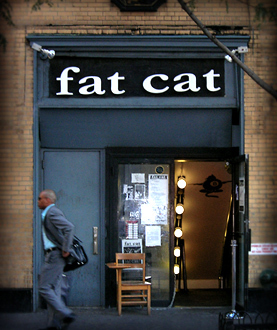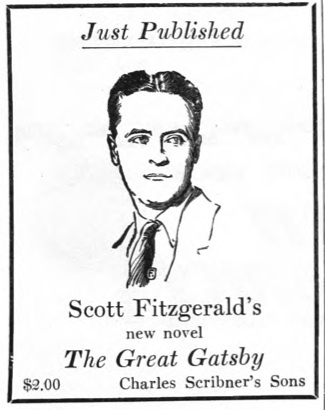The Paris Review's Blog, page 893
August 17, 2012
Bookscapes, Book Gardens
A literary moonscape by Guy Laramée.
More amazing book art: a visit to Quebec’s Garden of Decaying Books.
“A hundred and twenty five years ago, Oscar Wilde edited a fashion magazine, his first and only office job. We have yet to learn from the experience.” LARB on Wilde’s day job.
For the first four decades of competition, the Olympics awarded official medals for painting, sculpture, architecture, literature and music, alongside those for the athletic competitions.
If you’re in Boston this weekend, enjoy the Dog Day Poetry Marathon, featuring Dorothea Lasky, Jim Behrle, and Eileen Myles (among many others).
“As he told her that he loved her she gazed into his eyes, wondering, as she noted the infestation of eyelash mites, the tiny deodicids burrowing into his follicles to eat the greasy sebum therein, each female laying up to 25 eggs in a single follicle, causing inflammation, whether the eyes are truly the windows of the soul; and, if so, his soul needed regrouting.” Cathy Bryant of Manchester, England, has won the 2012 Bulwer-Lytton Fiction Contest, which celebrates the worst in writing.
August 16, 2012
Early Writhings
Going through my childhood desk recently I cleaned out years of weird detritus (novelty bar mitzvah magnets, Nickelodeon magazines, packets of incense cones) and came upon a copy of The Highland Fling, my high school newspaper. I opened the paper and scanned the newsworthy items of a Typical Suburban High School circa Spring 2001: various sports victories, a pointless Q&A with a sophomore, the possibility of a new town pool. Then I came to the reason I’d saved this particular paper: in its pages I had reviewed the Dave Matthews Band album Everyday.
That’s exciting, I thought. Let’s read what is sure to be some wonderful and delightfully precocious writing.
Or the other possibility.
Reading the review I cringed. There was light to moderate trembling. Maybe even perspiration.
Mrs. Crist
In early July, 1971, just out of journalism school, I took off for Paris. My intention was to spend a year or so freelancing. To this end, I carried with me assignments from two very small magazines and a sealed envelope, which I’d been given by Judith Crist, lately my critical-writing professor at Columbia’s School of Journalism.
“Give this to Murray Weiss at the International Trib,” she instructed.
Weiss was the editor in chief of that august journal and, she said, formerly a colleague of hers at its long-defunct but still much-admired progenitor, the New York Herald Tribune.
“What’s in it?”
“Don’t worry, just give it to him.”
A week or so later, in the Trib offices on the rue de Berri, I handed it over to Weiss’s no-nonsense assistant. “It’s from Judith Crist,” I said meaningfully—not the twenty-two-year-old nothing standing before her.
She walked briskly to the office beyond, and, after a long beat, like in a too-obvious movie, there came a roar of laughter. “Send him in!”
Weiss was behind his desk, holding the letter, still looking much amused. He half rose to shake my hand. “Listen,” he said, chuckling, “this is very nice of Judy. But, no, I’m not going to fire our film critic and hire you.”
Hemingway, Urdu, Doughnuts
Mediocre spy Ernest Hemingway
Ernest Hemingway’s World War II spying career was less than illustrious. In fact, when it came to one ill-fated Cuban operation, Papa was downright bumbling.
Meet The Musalman, a handwritten Urdu daily that has been published continuously since 1927 in Chennai, India.
“It hurts to be rejected, and it hurts even more when you walk into a real bookstore, one with chirpy sales clerks and splashy book covers, and see truly godawful books by authors represented by some of these very same agents.” Michael Borne on how to weather the agent-finding process.
Generation Y (those born between 1979 and 1989) outspent Boomers in books for the first time last year.
Check out Electric Literature’s Single Sentence Animations—in which an artist animates a favorite sentence from a writer’s story—here.
Dough Country for Old Men (subtitle: “As I Lay Frying”) is a blog that juxtaposes literary quotes against images of doughnuts.
August 15, 2012
Speaking the Language
Occasionally, when my mind is feeling overrun, flickering and buzzing like a dying electric light, I go down to Fat Cat on Christopher Street, in the West Village. Of the standard venues one goes to see jazz in New York City, Fat Cat is not one of them. The club is a huge recreation center, a dark and boozy suburban fantasy basement packed with pool tables, Ping-Pong tables, foosball tables, plush couches, dusty rugs, shuffleboards, chess boards, and booths where skinny NYU students play Backgammon or Scrabble. If the alcohol were removed, it would be a perfect place for a children’s birthday party. Above the music swirl youthful, exuberant screams of delight, punctuating either a winning serve or an eight ball sunk in its intended pocket. And off to one side, like an afterthought, is a makeshift bandstand, and at a certain late hour on most evenings there is a jam session in progress. Most of the drinkers busy themselves with games, but a few hang around and listen to a group of nomadic musicians riff on, say, “Polkadots and Moonbeams.” Nearby, expectant bass players hug their encased, cumbersome instruments, impatiently tapping their feet, waiting to get in on the action—they’ve just come from a low-paying gig across town, seeking a real payoff.
It is a high-art frat party, a safe zone where all kinds of New Yorkers can, for a night, indulge in what they may loathe, but perhaps long for: a sense of cultural superiority on the one side, or a bit of dumb Greek fun. No one seems particularly interested in jazz, save for the sidelined musicians, who are restless because they have talent to burn, if only they were given the opportunity. Because I’m myself restless, a writer waiting his turn, I have, more than once, gone to the club alone to stand with them in an improvised support group. Together we watch those musicians onstage take up their instruments. We watch them get acquainted and blunder and stumble into the opening bars of the tune, trading insecure glances, wondering if they’ll find the groove. We watch the trumpet player step forward for the first solo, puff out his chest, and raise the bell of his horn. We hear his first notes, typically tentative, as if he’s dipping his foot in the melody, just testing it out. And we hear him finally dive in, headlong, committing to the sound.
A Partial Inventory of Gustave Flaubert’s Personal Effects
As Catalogued by M. Lemoel on May 20, 1880, Twelve Days after the Writer's Death.
In the bedroom on the first floor:
panama hat
top hat
red silk cravat
5 pairs of gloves
19 shirts
2 dressing gowns
5 waistcoasts
7 walking sticks
tobacco jar
two pairs of boots
In the dining room:
35 champagne glasses
48 porcelain dinner plates
a painting representing Napoléon I
a pocket watch in a gold case engraved with initials ‘GF’
a gold watch chain
a gold signet ring with square stone
a silver spoon and two forks marked ‘N flaubert’
5 oyster-knives with black handles and silver blades
In the study on the first floor:
Engraving in oakwood frame representing The temptation of Saint Antoine by Callot
Marble clock with bronze figurines, maker’s name ‘Destigny’ engraved on dial
Photographic reproduction of painting entitled Visions
Array consisting of lances, javelins, arrows, mandolin, Basque drum, axe, oriental pipe, cardboard Chinese statuette
Large round table in mahogany
Green woolen tablecloth
One tiger skin, one lynx skin, one bear skin, white
Penholder in the shape of dragon
Bronze inkwell
Three paperknives, one with initials ‘GF’
Two Egyptian lanterns
Unfinished manuscript of work entitled Bouvard et Pécuchet
Creuzer, Religions of Antiquity in 11 vols
Works of Saint Theresa in Migne edition
Works of Walter Scott in 32 vols.
(In the drawer of one of the small bookcases is found the sum of 2515 francs, which sum is deposited with Maitre Bidault to cover funeral expenses, burial charges, and other debts.)
Joanna Neborsky is an artist living in Brooklyn. You can buy a copy of this poster here.
Gatsby, Sexting, and Rand
An original ad for The Great Gatsby, found in a 1925 issue of The Princetonian.
“My decade-long enamor with the poets and writers of the Beat Generation was about to pay off. As the only woman who adored Kerouac, I would be the vixen of the literary matchmaking board.” At the Millions, Stephanie Nikolopoulos on the Jack Kerouac gender divide.
In which Ayn Rand explains Objectivism on the Johnny Carson show. “I think you'll find her most unusual,” says he.
Poet Ron Silliman lost his library in a flood; help him reassemble it.
O tempora: new inductions into Merriam-Webster include f bomb, man cave, and sexting. A full list here.
On the other hand, the more things change, et cetera. This 1950 Library Journal asks if new media is rendering reading obsolete.
August 14, 2012
Someone to Watch Over Me
When I was twelve and my parents’ marriage was falling apart, my dad explained to me that he never actually wanted to get married and have kids. The only reason he did it, he said, was because it would make him less likely to be drafted into the Vietnam War. It never occurred to him that telling me this might hurt me. He was a successful musician and an esteemed jazz scholar, but he had virtually no ability to sense another person’s feelings. If he were growing up today, his diagnosis would have been obvious: Asperger’s syndrome.
I shrugged this moment off as another instance of my dad’s profound insensitivity, which was so much a part of my foundational world that it didn’t feel shocking. I knew he was clueless about the emotional bonds that connected us, but they were real to me anyway, and reacting would have been pointless. I had watched my mother pour her heart out to him, and he never once heard her. She could never make him understand how the things he did affected her—his charts analyzing how much money she spent on different categories of groceries at the Safeway, his refusal to break his routine when she needed to talk. “Make an appointment,” he told her, and the emotional response that followed didn’t even pass his notice. He didn’t get that channel.
Watch: At the Bindery
As we prepare to send our next issue to press, a reader kindly reminded us of this blast from the past: Reading Rainbow’s field trip to a book bindery! Warning: the stirring theme will be stuck in your head for hours.
Dahl, Maps, The Royal Tenenbaums
The new Vogue features contemporary authors as members of Edith Wharton’s circle and was shot at the Mount. Look for Jeffrey Eugenides, Jonathan Safran Foer, and Junot Díaz as Henry James, Morton Fullerton, and Walter Van Rensselaer Berry. (Wharton herself is played by model Natalia Vodianova.)
Essential cartography books.
Bookshelf of the day: a literary staircase.
The hundred best-selling British books of all time. (The usual suspects, plus Eats, Shoots and Leaves.)
The books from The Royal Tenenbaums, actualized.
“For material things, we were fortunate, but it was not a happy beginning to my life.” Tessa Dahl talks about the difficulties of growing up with her famous father. Perhaps sensationalism is no shock in The Daily Mail, but we defy you not to be taken aback by Roald’s penchant for home-medicating his children.
The Paris Review's Blog
- The Paris Review's profile
- 305 followers












